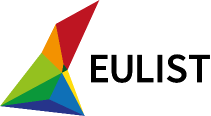Unsere Story / Our Story
CTS//circle.didactics
Keynote on learning analytics
On 28 May 2025, CTS member René Röpke from circle.didactics opened the Academic/Learning Analytics Network Meeting with a keynote speech on learning analytics research in Germany. In his presentation, he highlighted innovative approaches to analysing learning data, introduced various research stakeholders and reported on an interdisciplinary project to analyse study progression using learning analytics and AI.
CTS//event.13


CTS//AK.designSprint: Exploring Deep Tech for a Fair and Sustainable World
The Center for Technology & Society (CTS) and the Arbeiterkammer Wien can look back with pleasure on another successful Tech Design Sprint: from 8 to 10 May, interdisciplinary teams of students developed creative solutions for this year’s main theme ‘Exploring Deep Tech for a Fair and Sustainable World’.
Weitere Infos:CTS//circle.responsibleComputing
Workshop with the University of Twente
On 7 May 2025, the CTS organised an interactive workshop on the responsible use of artificial intelligence for international students at the University of Twente. The focus was on ethical issues relating to deepfakes, automated radicalisation and disinformation, which were analysed and worked on by the participating students using the Value Sensitive Design approach.
CTS//circle.responsibleComputing
Perception vs. Reality: The Illusion of Security - Why We (Erroneously) Trust Technologies in the Age of AI Revolution
CTS//circle.responsibleComputing hosted a brown-bag talk with Rafael Vrecar on the topic of ‘Perception vs. Reality: The Illusion of Security - Why We (Erroneously) Trust Technologies in the Age of AI Revolution’. The focus was on the discrepancy between perceived and actual security in digital technologies and the risks that can arise from a deceptive sense of security.
CTS//circle.responsibleComputing
Artificial intelligence, diplomacy and responsibility at the Milton Wolf Seminar 2025
In April 2025, CTS member Kevin Blasiak from circle.responsibleComputing took part in the ‘Milton Wolf Seminar on Media and Diplomacy’ at the Diplomatic Academy of Vienna. Under the title ‘Ouroboros: The Infinite Loop of Media, Democracy, and Diplomacy’, he joined international experts to discuss the mutually reinforcing processes that characterise our current information landscape, including technological change, loss of trust in institutions and the fragmentation of media and diplomatic practice.
CTS//event.13


CTS//AK.designSprint ‘Exploring Deep Tech for a Fair and Sustainable World’ Engagement Event
In preparation for the Tech Design Sprint 2025 and for targeted pre-networking of the student teams, the CTS organised an engagement event that supported early exchange and team building.
Weitere Infos:CTS//insights
CTS//insights PowerLEO visit
In March 2025, the Center for Technology & Society (CTS) invited 15 girls to a workshop at TU Wien as part of the PowerLEO programme to introduce them to the world of technology. The participants learnt about the university through a quiz, discussions with female role models in computer science and practical exercises with robots. The workshop was organised in cooperation with the EduLab at TU Wien and the Arbeiter-Samariter-Bund Wien.
CTS//circle.responsibleComputing
Educational Games for Digital Education: Uncovering learners’ misconceptions
On 16 January 2025, Dr René Röpke gave a presentation on ‘Educational Games for Digital Education: Uncovering learners’ misconceptions’ as part of the CTS//circle.responsibleComputing brown bag seminar series. The presentation shed light on how playful learning environments can help to uncover and address misconceptions in digital education.
CTS//circle.responsibleComputing



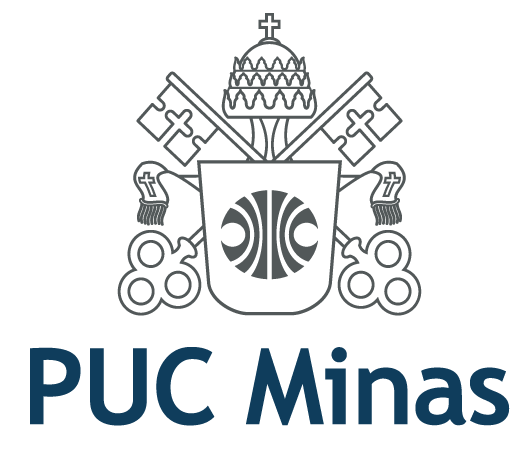
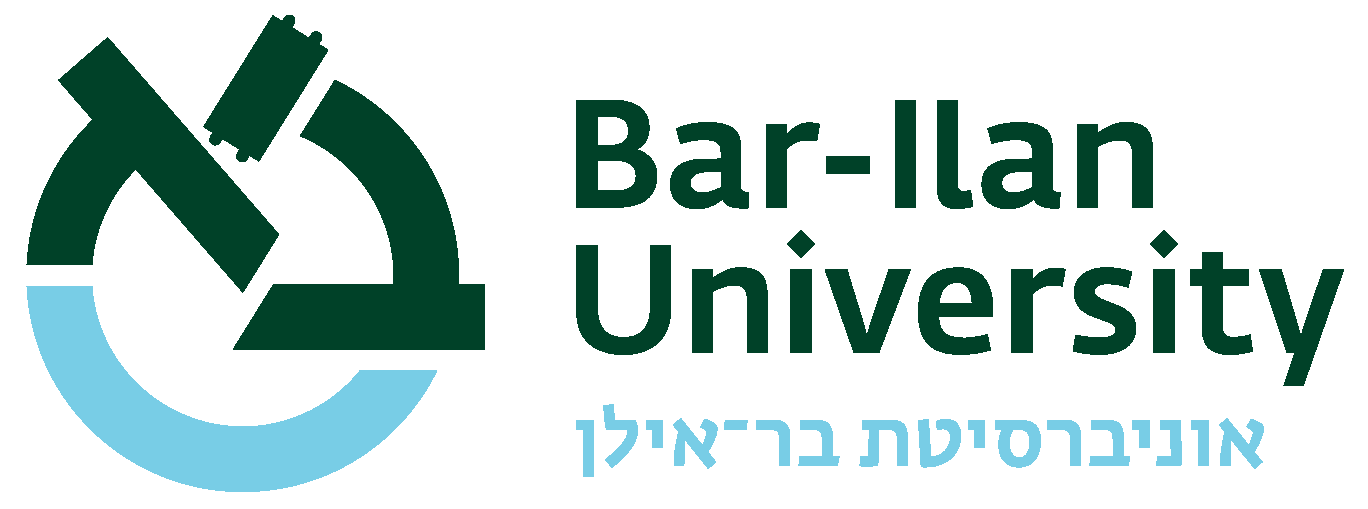
YOUTH. Unsettled Everyday Lives and Young People’s (Non)Digital Access to Urban Public Space.
On 12 December 2024, Alvie Augustin presented the YOUTH research project, which deals with young people’s experiences of digital and non-digital access to urban public spaces, as part of the CTS//circle.responsibleComputing brown bag seminar series. The presentation highlighted social inequalities and emphasised the importance of intersectional perspectives in the design of inclusive urban spaces.
CTS//event.12


CTS//AK.designSprint “Applying Responsible Technologies in New Work”
Following the successful “Hackathon of the Many” in 2022, a Tech Design Sprint will take place this year from 12-14 September. The theme is New Work and the responsible use of technology. The CTS is designing and organising this event in collaboration with the Vienna Chamber of Labour (AK Wien).
CTS//event.11

CTS @ EUSSET “Summer School on Computer-Supported Cooperative Work: Foundations, Methods and Technologies”
CTS-sponsored social dinner as part of the “EUSSET 8th International Summer School on Computer-Supported Cooperative Work: Foundations, Methods and Technologies”
CTS//event.10




CTS//midsommar.2024 + 5 Anniversary
On the occasion of the 5th anniversary of the CTS, we look back on the past years and identify future relevant interfaces between technology and society.
CTS//event.9

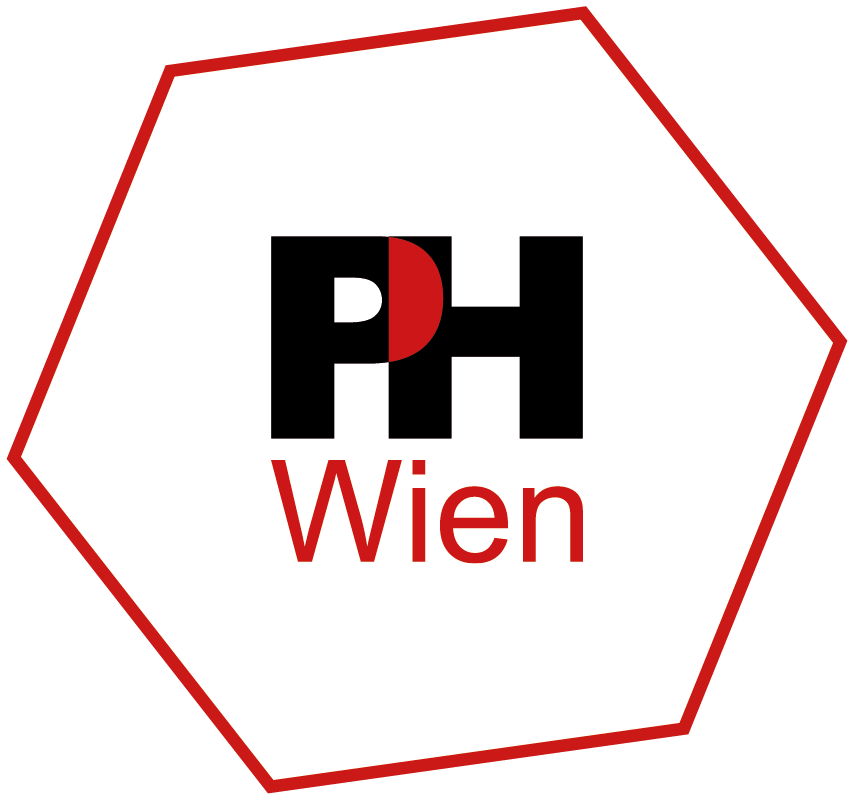
CTS @ DK STE[A+]M
In an unprecedented initiative, the Vienna University of Technology (TU Wien) and the Pädagogische Hochschule Wien (PH Wien) are joining forces for the first time. The aim of the STE[A+]M doctoral programme is to research holistic education and skills in various fields, such as science, computer science, art, architecture, mathematics, the environment, etc. The aim is to explore holistic education and competences. We cordially invite all interested parties to participate in the exchange and gain interactive experience.
Weitere Infos:CTS//insights


CTS//insights @ Seminar HCI Lunchtime Series “Towards Adaptive Human-Robot Teams: Workload Estimation by Julie A. Adams”
This year, the CTS is focussing on the topic of robotics. This time, we took a look at the Human Computer Interaction Group at TU Wien and Assistant Prof. Astrid Weiss and attended an exciting lunchtime talk at their premises on 16 April 2024 as part of the Lunchtime Series.
CTS//event.8
Start of the seminar series “Exploring The Frontiers of Responsible Computing” by CTS//circle.responsibleComputing
The CTS//circle.responsibleComputing and the CTS are pleased to introduce a new brown bag seminar series. This series will address the important issues surrounding the ethical and sustainable development and use of technology. The following topics will be explored in depth: The Core Principles of Responsible Computing, Practical Applications and Real World Impacts, Emerging Trends and Future Developments.
Weitere Infos:CTS//project.27





Project funding “Youth”
The YOUTH project examines youthfulness in the context of social inequality and social media platforms. The aim is to empower young people to gain access to public spaces and overcome disadvantages. A comprehensive methodological framework was developed for this purpose, which was refined in a joint spring school in order to continue the research.
Completion of the transfer and integration of the former C!S into the CTS//circle.responsibleComputing
The former Centre for Informatics & Society (C!S) was transferred to the CTS//circle.responsibleComputing as an active field of research.
CTS//event.7


Seminar “Creativity and Infrastructuring” as part of the DK STE[A+]M
The seminar, organised by the Center for Technology and Society (CTS) and the Norwegian University of Science and Technology (NTNU), focused on creativity and infrastructure and identifying key interfaces between these concepts. The results of the seminar were subsequently summarised in a scientific paper and explored in greater depth in further workshops (Workshop at the 22nd European Conference on Computer-Supported Cooperative Work).
CTS//lecture
"STEAM - STEM - stART’em" (as part of the DK STE[A+]M)
180.005 Doctoral seminar for STEM and related subjects, SE, 3 ECTS. A seminar for doctoral students accompanying the DK STE[A+]M
CTS//event.6


CTS//TUA.SummerSchool “Sustainable Futures
Vienna, 4 to 8 September 2023 - TU Austria, together with the Center for Technology & Society (CTS), has once again positioned itself as a pioneer, this time in the field of sustainability. The “Summer School Sustainable Futures” was launched at the Vienna University of Technology (TU Wien). This innovative educational initiative not only demonstrates the universities’ determination to integrate sustainability into research and teaching, but also sends a signal to society in the midst of the pressing climate crisis. 3 ECTS were awarded for successful completion of the programme.
Weitere Infos:Start of the Doctoral Colleges STE[A+]M
Following the approval of the OeAD application as part of the call “Educational research needs educational innovation”, the three-year DK for 4 dissertation positions has been launched. This is a collaboration between the CTS//circle.didactics and its career centre with the PH Vienna.
First donation pledge + preparation of the planned Joint Professorship
1st donation commitment (private individual), commitment of the European Commission to the EUI “EULiST”, commitment to the OeAD application (doctoral programme STE[A+]M), preparation for the establishment of a bridge professorship “Diversity in MINT
CTS//event.5
CTS//midsommar.2023
The first annual Midsommar event: public relations by presenting the range of activities of the CTS and promoting exchange between researchers and stakeholders through the Centre for Technology & Society (CTS). It was an exciting afternoon that provided a platform for knowledge exchange, project presentations and socialising.
Weitere Infos:CTS//lecture
"Telling stories with the camera - storytelling and film design" (in CTS//project "Storytelling by Students")
180.782 Storytelling with the camera - storytelling and film design, VU, 3ECTS. The videos created were utilised in the CTS//project “Storytelling by Students”.
CTS application in the OeAD call "Educational innovation needs educational research" 2023
The proposal submitted by CTS//circles.didactics together with the PH Vienna aims to establish a joint, interdisciplinary doctoral programme. The challenges of inclusive, meaningful and effective STEM teaching are to be addressed through the innovative possibilities of the subject areas of computer science, technology, art and art education. Particular attention is paid to computer science lessons, which are often taught by non-specialist teachers and make an important contribution to digitalisation, but sometimes fail to reach and motivate pupils sufficiently.
Weitere Infos:CTS//project.26



Project funding “Storytelling by Students”
In this project, future first-year students are networked with students in order to make it easier for them to choose a degree programme and enter the world of higher education. Students talk about their experiences of choosing a degree programme and their first study experiences. The storytelling-by-students platform created in the project is a website on which students can share their content, including podcasts, text contributions and videos on the topics of choosing a degree programme, university life and life outside the university.
CTS//project.25



Project funding “Model-based Support of Thyroid Diseases Treatment”
The thyroid gland and its hormones in the thyrotropic control loop are a complex system that regulates thyroid function. In this young field of research, medical aids based on mathematical models can shorten treatment times. The long-term goal is therefore to develop a medical assistance tool. The CTS project formed the proof of concept for the feasibility of this assistance tool. Follow-up projects are being planned.
CTS//project.24



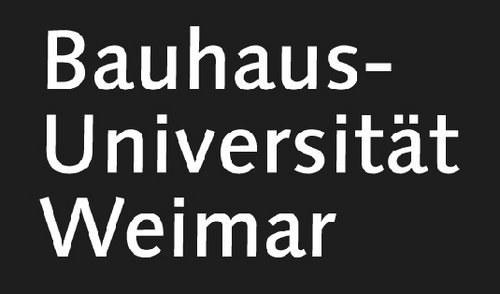
Project funding “Blocked Under Ground - Rescue Operation”
The aim of the cross-media project was to develop an audio game. To summarise, it is a project that tells the story of an underground catastrophe in a flooded metro system in a large city. In this game, the players are challenged purely aurally. In addition to the audio game developed, both a 3D radio play, which was published on Bavarian radio (see also ARD Audiothek), and an audio walk were created.
Publishing “Summer/Winter School Template” of the project “How2SummerSchool”
As part of the open source concept, we are making one of our project results available: a handbook for planning, organising and running a summer or winter school.
Development of first possible test products (minimum viable products)
Active product and concept development & implementation for co-operation requests from industry and interest groups, as well as test products whose needs have arisen from the co-operations.
CTS//event.4


CTS//AK.hackathon “Hackathon of the Many”
From 23 to 25 September 2022 was the culmination of intensive planning and preparation between the CTS and the Vienna Chamber of Labour: the three-day “Hackathon of the Many - With Digitalisation to More Justice” on the topic of Digital Justice & Design Thinking took place at TUtheSky at TU Wien. It was the ideal combination of social skills and technical expertise with the goal of digital justice! Good ideas subsequently received start-up funding from the AK Digifonds. Concept and realisation: CTS & AK Vienna.
Weitere Infos:CTS//event.3
CTS @ European Forum Alpbach: Content Session “Die (R)evolution sozio-technischer Hybride”
In August 2022, TU Wien, TU Graz and Montanuniversität Leoben, together with TU Austria and CTS, organised an exchange of ideas. To shape the inevitable (r)evolution of socio-technical hybrids, open questions, perspectives and solutions for humanistic technology development were discussed in keynotes and a panel discussion. The content session was conceptualised and implemented by CTS.
Weitere Infos:CTS application in the WWTF call “Roadmaps Digital Humanism” 2022
The aim of the application was to create and disseminate a concept and manual for good, structured digital transformation at educational institutions. The project aimed to shape the view of objects, relationships and values in research, teaching and third mission in a human-centred way and to develop mechanisms and instructions that help to further develop, preserve and pass on this humanity.
Weitere Infos:CTS//event.2
CTS//workshop for students of the TU Twente “Critical Algorithm Studies and the AMS Algorithm”
The C!S and CTS welcomed 25 students from the Philosophy of Science, Technology & Society programme at the University of Twente for a workshop on Critical Algorithm Studies. The workshop took place as part of a study trip organised by the “W.T.S. Ideefiks” Study Association, which is interested in the interplay between technology and society.
Establishment of CTS internally (within TU Wien) & externally (at the Vienna site and in the CTS houses)
Consolidation of the mandates in the CTS//sites (CTS houses), development of 7 research fields - the CTS//circles - and active establishment of already 4 circles, development of partnership models for academic and non-academic partners (fundraising strategy for independent establishment and maintenance)
CTS//project.23



Project funding “EnviSense”
As part of the project, national and international best practices were collected and analysed in the sense of a state of the art research on the topic of technologically supported awareness raising in the areas of climate change, quality of public space and mobility by means of expert interviews. It was shown to what extent low-threshold technical artefacts (e.g. environmental sensors) are available and how they are used. The focus is on citizen science and participatory sensing as approaches for involving citizens in environmental data collection.
CTS//project.22




Project funding “How 2 Summer School”
The summer school “Zukunftsland Lungau”, funded by the CTS and the state of Salzburg, formed the basis for this project. The numerous experiences gained in the process of organising a transdisciplinary and regional summer school were collected and summarised in a digital handbook. These experiences and templates will enable future transdisciplinary summer school teams to save time, energy and resources in the organisation and focus more intensively on the content-related dimensions.
Establishment of CTS//sites & international connection through EULiST
Expansion of cooperation between the CTS centres (CTS//sites), local coordination of the EUI EULiST (European University Linking Society & Technology) at TU Wien.
CTS//lecture: “voice.of.diversity - fair job opportunities without prejudice”
060.024 voice.of.diversity - fair job opportunities without prejudice, UE, 1 ECTS. The course is the result of the DEBIAS project of the former C!S, now CTS//circle.responsibleComputing, funded by AK Wien and is still used by the TU Career Centre.
Weitere Infos:CTS//project.21



Project funding “Skill-sharing for young people with disabilities”
The thematic and content framework of the project was to explore ways in which young people and young adults with disabilities can be supported in sharing their digital skills. The project team found: there is a need for support for young people with disabilities; there are few projects that teach self-help skills; it is complex to develop holistic support; platforms and a playful approach can be helpful.
CTS//project.20



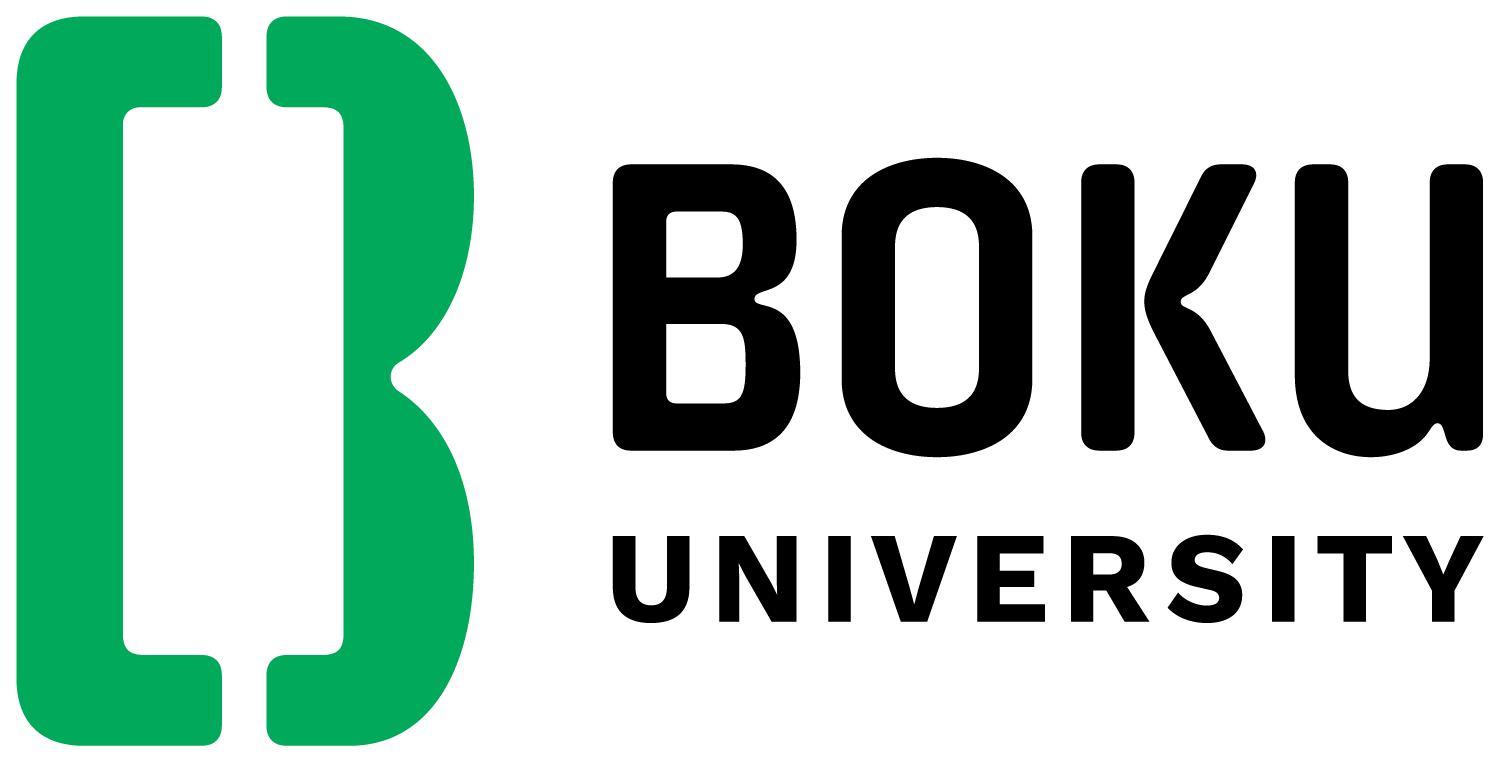

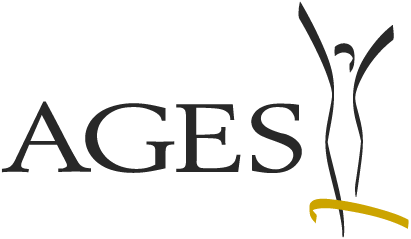
Project funding “Tradition in Transformation: The Cultural Landscape of Cellar Lanes”
The project focussed on the cultural landscape of the Kellergassen, their development potential and the options for long-term preservation as a UNESCO World Heritage Site. The result of this project is a basic document for achieving World Heritage status for the Kellergassen. In addition, the definition of the parameters for monument preservation requirements was discussed and a practical application of structural measures for cellar restoration was carried out.
CTS//project.19



Project funding “GoData Space”
GoDataSpace was an exploratory research project on the governance of Urban Data Space. The aim of the project was to assess the emerging technology of Urban Data Space (U/DS) and provide the basis for future research projects and technology development in this area. The results of a series of workshops with stakeholders from research, policy, civil society and industry provide an exploratory assessment of U/DS and its governance to guide future research and inform policy.
CTS//project.18



Project funding “New Mobilities of post-traditional communities”
This project aimed to investigate the impact of peer-to-peer (P2P) car sharing in different neighbourhoods and to identify differences in the perceptions of those who offer/use car sharing and those who do not. To this end, a comparative analysis was carried out in three different neighbourhoods.
CTS//project.17



Project funding “iMentality”
With the increasing digitalisation of society and almost all areas of life, the scope of action, role and responsibility of computer scientists as experts and designers of these developments is also changing. This project focussed on role models and engineering mentalities in computer science. The results show that the mindsets of engineers are often neglected, while there is great interest in questions of responsibility.
CTS//project.16



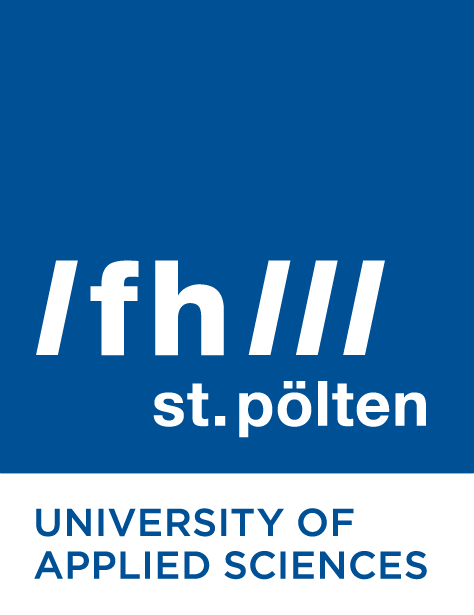
Project funding “Workshop on Non-Binary Language Towards Non-Binary Language Technology”
As the visibility of non-binary people increases, gender bias in language becomes apparent. As part of the project, a participatory workshop was organised in which translation guidelines for non-binary language use were developed. It became clear that there is no universal gender-appropriate strategy for language and machine translation. Although technical standardisation is necessary, it is at odds with the required diversity. The results of the project were used for further intensive research.
CTS//project.15


Project funding “muco - A music computing learning application”
The project combined computer science and music in an interdisciplinary approach that piqued the students’ interest, with potential for further research. MUCO was a feasibility study in the field of STEM and art, in the context of which a musical programming learning application was created for independent learning outside of formal lessons. The aim of the implemented learning app is to impart programming knowledge and skills in a musically orientated development and learning environment.
CTS @ EULiST (Local Coordination for the TU Vienna)
Content interface for TU Wien in the European University Initiative (EUI) “EULiST” (ongoing) as well as local coordination in-house (until 08/22).
CTS @ ScienceCenter Network
Content-related links through the accession of TU Wien and CTS as network partners in the ScienceCenter Network. The ScienceCenter Network is the competence centre for interactive science education in Austria with the aim of bringing everyone into contact with science and technology.
CTS//event.1

Workshop at the FH Campus Wien
Presentation of the CTS & active project recruitment as part of the R&D Café at FH Campus Wien.
CTS application “YO!” in the FFG call “IKT of the Future” 2020
The aim of the application was to have young people aged 14 to 18 develop information and communication technologies (videos, augmented reality, etc.) directly in their own social spaces. This was to be carried out in three ideally selected Viennese districts, each with professional partners (open youth work organisations) specifically addressing the inequality situations. In addition, ongoing support should be provided by a transdisciplinary research and development team consisting of social pedagogues, sociologists, youth workers and computer scientists.
Weitere Infos:CTS//project.14




Project funding “Innovation lab for digital inclusion (IDI)”
The aim of this participatory research project was to address the question of when, where and why ‘one-size-fits-all’ premises, i.e. the assumption that the same digital solutions could solve everyone’s problems, reach their limits when it comes to inclusive design. Based on theoretical considerations on inclusion and digitalisation, taking into account various dimensions (including legal, economic and political), a practice-relevant model for inclusive digitalisation was developed for various fields of application (e.g. inclusive schools or the economy/labour market).
CTS//project.13



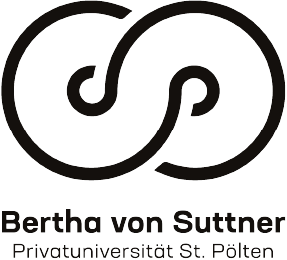
Project funding “Social & Digital Resilience need Critical Infrastructure”
Against the background of so-called “mental health apps”, the project analysed their functionality, lack of standards and (therapeutic-medical) efficiency. This revealed a great need for action and research. In the course of this, the consortium defined minimum requirements, explored the legal feasibility and defined minimum technical standards.
CTS//project.12
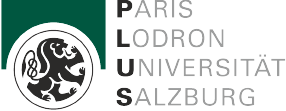



Project funding “Participation in Hybrid Realities”
This transdisciplinary project investigated how socio-technical realities are negotiated and (re-)produced in digitally expanded public spaces. The CTS funding provided the framework for an innovative project idea for a systematic examination of social norms and power in hybrid realities. Based on questions of social participation and visibility, digital interventions were designed in transient physical spaces. These enabled the participants to explore digital realities and their reciprocal relationships with physical spaces.
Development of the “Voice of Diversity” course as part of the DEBIAS project by C!S
As part of the DEBIAS project, funded by the AK Wien Digitalisation Fund, the former C!S (now CTS//circle.responsibleComputing) developed the interactive course “Voice of Diversity” and continues to be used by the TU Career Center.
CTS//project.11



Project funding “SAVE(ing) SPACES”
The SAVEing SPACES project sees itself as an activating project. As a safe, physical, digital and social learning space, the series of workshops carried out as part of the project was intended to promote critical exchange and offer teachers and students the opportunity to test theories, formats and tools together while learning new things and thinking about new learning. The project has provided important insights into the learning cultures of the participating disciplines and universities. In addition, a network of practice-orientated disciplines was created and the materials and data developed were made available as a multimedia resource and knowledge pool on the save-ing.space website
CTS//project.10




Project funding “Digital Literacy - Robotic Workshops for Underprivileged Children”
The aim of the project was to identify digital education barriers (especially for underprivileged people) and to identify possible solutions. The focus was on promoting an understanding of technology in relation to digitalisation and robotics. Through research and development work, a universal design was created that reduces complexity in the digital space and makes it understandable, while also driving social and technical innovation.
CTS//project.9



Project funding “Lectures for Future - Second Level”
The Lectures for Future (L4F) are an interdisciplinary lecture series offered at various universities. Researchers provide insights into their current scientific and artistic work on the topics of the climate crisis and sustainable development. The design of the teaching and communication format was scientifically monitored in the “Lectures for Future 2nd level” project. The study confirmed the added value of the Lectures for Future for society as a whole as well as the positive response from course participants and guest lecturers.
CTS//project.8



Project funding “BioNoWo”
The aim of the project was to research an innovative and sustainable packaging concept. This was based on a reusable container made from nonwovens that are produced from renewable raw materials and are biodegradable. Thanks to the CTS funding, the partners were able to prepare a high-quality BBI application for the “BioNoWo” project and submit it in summer 2020.
CTS//project.7



Project funding “Bias in Automated Driving Systems”
The aim of the project was to research the future of Automated Driving Systems (ADS) learning environments in the greater Vienna area. This was done in collaboration with the asparn.mobil LAB. Questions about systematic biases in learning environments were answered in order to be able to analyse the use of Automated Driving Systems in different contexts in more detail. In addition, guidelines for the correction of biases in training data were developed.
CTS//project.6





Project funding “Active Assisted Living (AAL) - 2nd level”
This project supplemented the predecessor project “AAL (Active Assisted Living) Best Practice Scoping Review” with additional interviews and analyses. The main findings were that most AAL projects rated the process and output positively. Nevertheless, problems arose, such as insufficient methodological expertise in user involvement or major delays due to the COVID pandemic. The results provide a guideline on which future projects of this kind can build.
CTS//project.5




Project funding “Best Practice Inter- & Transdisciplinary Teaching”
The project focussed on the question of how inter- and transdisciplinary teaching is practised at the CTS partner universities. The results showed that inter- and transdisciplinary teaching takes place in a variety of formats. Case-based learning in particular proved to be an advantageous format for didactic design, as it brings the disciplines involved into a fruitful exchange through concrete case studies and highlights the limits of expertise.
CTS//project.4




Project funding “Linked Care”
This project aimed to develop information technology systems that address practical challenges in mobile healthcare. The application developed in the project enabled comprehensive support in the care process by exchanging and evaluating health data via standardised interfaces through a continuous flow of information.
CTS//project.3





Project funding “AAL (Active Assisted Living) Best Practice Scoping Review”
This project focussed on technological developments to promote care and support in the home environment. To this end, best practice scoping was developed for projects in the area of national active assisted living (AAL) projects. The resulting recommendations for future AAL projects emphasise the early involvement of users in technology developments as well as continuous and far-reaching contact beyond the end of the project.
CTS//project.2




Project funding “Country Summer School 2021”
The summer school “Zukunftsland Lungau” was a project focussing on the topic of rural areas with a special focus on “innovation” and “gender arrangements”. During the summer school, students from five different universities and 21 study programmes lived in Lungau and developed projects on the location. Various formats and methods were used to analyse the topic area.
CTS//project.1




Project funding “DEPART (Digital Participation)”
The project consortium analysed existing participatory online platforms (such as the “SagsWien” app) in the context of digital governance and community interaction. The aim was to better understand citizen interaction and the reaction of platform operators and to consider critical aspects in the development of new digital tools for community interaction.
C!S project: “DEBIAS - Discrimination and bias in the recruitment process”
Together with the TU Career Center, the C!S answered the question of how we can use anonymisation technologies to counteract unconscious bias and create a fair job interview without compromising the personal assessments that are important for this interview too much. The result of the project is the Voice of Diversity course, which is offered to companies and brings students together with them.
Weitere Infos:Start of the 1st project round with active consortium formation by the CTS
Start of the first call via the CTS’s own application page to initiate interdisciplinary and transdisciplinary projects in the field of Technology & Society. Despite the pandemic, the first exciting consortia were formed and exciting projects were driven forward.
Founding of the CTS (Transfer from the Centre for Technology (Digitisation) & Society Vienna)
Building on the ZTGW, the Centre for Technology & Society (CTS) was founded at TU Wien on behalf of the BMBWF. The aim of the CTS is to establish a cooperation platform for socio-technological topics and the networking of researchers in the CTS centres (TU Wien, Uni Wien, FH Campus Wien, FH Technikum Wien).
Foundation of the “Digital Humanism” initiative at the instigation of the C!S in Vienna
At the instigation of the C!S, the “Digital Humanism” initiative is founded in Vienna with the publication of the “Vienna Manifesto on Digital Humanism”. These activities also give rise to the recognition and need for a broader-based centre for technology and society.
Weitere Infos:C!S-Event: Workshop “The AMS Algorithm and Accountable Systems”
Together with the Privacylab (now the Sustainable Computing Lab), C!S organised a workshop on the AMS algorithm from a socio-technical perspective at the Vienna University of Economics and Business, based on the previously compiled analysis report.
C!S-Project: “AMS algorithm - a socio-technical analysis”
In this C!S project, a socio-technical analysis of the Labor Market Opportunity Assistance System (AMAS) was carried out. In cooperation with the Institute of Technology Assessment (ITA) of the Austrian Academy of Sciences, the C!S (Vienna University of Technology), the University of Michigan and the Upper Austrian Chamber of Labor (AK OÖ), a comprehensive analysis report on the AMS algorithm was produced.
Weitere Infos:- https://cisvienna.com/en/ams-analyse/
- https://cisvienna.com/en/studienprasentation-zukunft-der-digitalen-transformation-downloads-2/
- https://cisvienna.com/en/gastkommentar-dem-ams-algorithmus-fehlt-der-beipackzettel/
- http://epub.oeaw.ac.at/ita/ita-projektberichte/2020-02.pdf
- https://www.oeaw.ac.at/ita/projekte/der-ams-algorithmus/
C!S-Lecture: Lecture Series “Aspects of Digital Transformation”
In the 2018 winter semester, the C!S hosted a monthly lecture series on digital transformation. Lecturers included Prof. Gerhard Fischer (University of Colorado / USA), Prof. Ehud Shapiro (Weizmann Institute of Science / ISR), Prof. Klaus Kornwachs (University of Ulm / DE) and Dr. Astrid Mager (Institute of Technology Assessment, ÖAW / AT).
Weitere Infos:- https://lectures.cisvienna.com/
- https://cisvienna.com/en/vortrag-exploring-design-trade-offs-for-quality-of-life-in-human-centered-design/
- https://cisvienna.com/en/prof-ehud-shapiro-computational-foundations-for-e-democracy-vortrag/
- https://cisvienna.com/en/prof-klaus-kornwachs-data-interests-ontologies-how-business-models-distort-science-vortrag/
- https://cisvienna.com/en/dr-astrid-mager-visions-and-values-in-european-search-engine-design-vortrag/
Founding of the “Centre for Technology (Digitalisation) & Society Vienna” (ZTGW, predecessor of the CTS)
This center was the forerunner of today’s CTS and was accompanied by C!S board members.
C!S-Event: “Ethics & Bias in Artificial Intelligence”
Together with “Vienna Deep Learning Meetup”, the C!S hosted a discussion evening on the topic of “Ethics & Bias in AI”. The event was accompanied by exciting keynotes and top-class panel participants such as Prof. Moshe Vardi, Prof. Peter Purgathofer, Prof. Sarah Spiekermann-Hoff, Prof. Mark Coeckelbergh and Dr. Christof Tschohl.
Presentation of the Delphi study “The future of digital transformation” conducted by C!S
An investigation into relevant areas of society, technologies, problems and global challenges in the digital transformation. The project included 32 experts from 10 countries (duration 6 months).
Weitere Infos:C!S-Event: “Symposium “Digital Transformation”
All-day symposium with presentations and a panel discussion on the topics of smart cities, Industry 4.0, social media, fake news and eHealth.
Project “Future University - Differentiation, Cooperation, Permeability” of the BMBWF
Birth of the idea of a cross-university center for technology and society.



